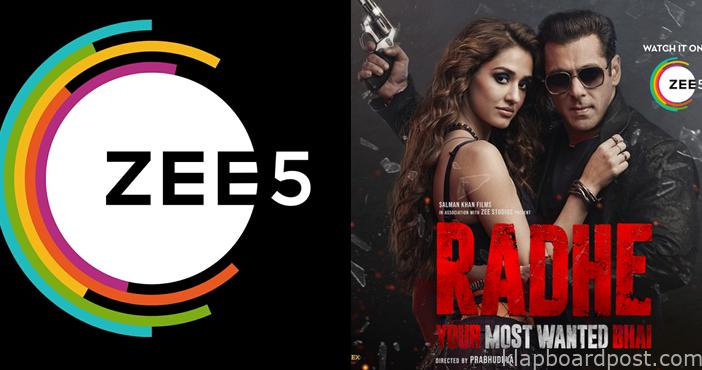
Zee Studios had paid nearly ₹230 crore to acquire Radhe along with a few other films in a bundle deal. With the film unavailable in theatres in the domestic market, Zee’s gamble to recoup costs from the pay-per-view model hasn’t exactly set the cash registers ringing, nor has the film impressed the diaspora in international markets.
Released in markets such as the US, UK, UAE, Australia and New Zealand, Radhe made $1.875 million over its first weekend overseas. In contrast, Khan’s previous films, Dabangg 3 and Bharat, both released in 2019, had earned $4 million and $6.25 million respectively on their opening days alone. The pay-per-view strategy, too, hasn’t paid off. Zee said Radhe had garnered 4.2 million views across online and DTH platforms on its opening day and that unprecedented traffic had brought servers down temporarily on the first day. Radhe is available for a one-time watch for ₹249 on ZeePlex. Existing Zee5 subscribers can also watch the film by paying an extra ₹249, while Zee introduced a special “Radhe Combo Offer”, giving viewers the opportunity to watch the film along with a one-year subscription to ZEE5 for a price of ₹499.
A 4.2 million views do not actually translate into an equal number of purchases of the film online. Industry standards presume that a family of four or five or even friends could watch the film on one purchase and that actual tickets sold for the film online could be around 1.05 million (one-fourth of it) or 0.84 million (one-fifth). The overall weekend purchases of the film are unlikely to have exceeded 2.5 million. Around 40% of all views on day one came from DTH (direct-to-home) services while existing subscribers drove viewership on the streaming platform ZEE5.
The film has not seen too much traction online. In fact, most views have come from existing ZEE5 subscribers, failing to drive any new users to the service. It has been an expensive buy for Zee Studios and there are no two ways about the fact that there will be losses. Given that the deal was signed months ago when theatres in India were expected to gradually start functioning normally, Khan’s company is said to have agreed to renegotiate terms to offset Zee’s losses by around ₹20 crore.
However, back of the envelope calculations show that it’s still not a profitable deal for Zee. Sure, it could earn up to ₹10 crore from overseas collections in the coming days, approximately ₹20 crore from music rights and ₹30 crore from long-term digital views and online purchases of the film. “Plus it’s a mass-market film so there is likely to be a big satellite television premiere with lots of advertising that could bring in Rs. 50-60 crore. But the company is still looking at a shortfall of Rs. 70-80 crore,” an analyst pointed out.













